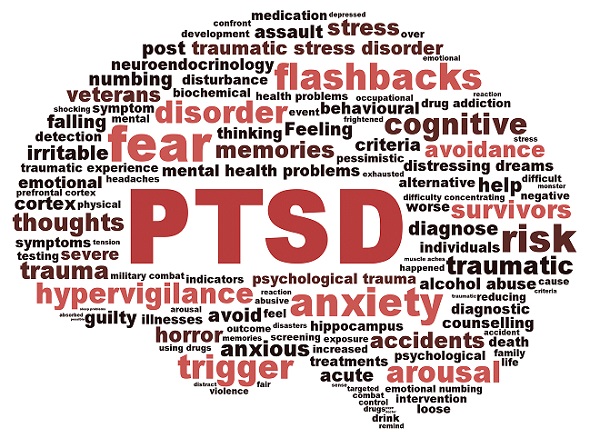How To Cope With PTSD Anxiety During The COVID-19 Lockdown

About 7.7 million adults Americans have PTSD, according to the Anxiety and Depression of America, and 3.6 % of the US population had experienced it in the past year, says the National Institute of Mental Health. Those are big numbers. And with the COVID-19 lockdown forced by the coronavirus pandemic, those people are severely exposed to an aggravation of their condition.
While every one of us is affected by the isolation’s effects, there are people among us that experience it in a particularly intense way. Post-traumatic stress disorder is the name given to the struggle that victims of rape, assault, or torture have to deal with every day of their lives. For them having to live in isolation can be torture all over again.
What we feel like anxiety doesn’t come even close to what they are feeling. Although anyone can get inspired by it, this article is primarily dedicated to those struggling with PTSD by trying to give them strategies that could help and ease the experience.
How to cope with PTSD anxiety during COVID-19 lockdown
Relaxation
Meditation, deep breathing, massage, or yoga are practices meant to redirect your mind towards interior safer places. Some of the most effective relaxation techniques are mindfulness-based ones, such as loving-kindness meditation or mantra repetition practice.
Refocus
Physical exercises have the power to change your focus from the trauma to your body. Having to concentrate on your movements and counting the number of rhythmic exercises can help break the pattern that your mid generated to make you relive the anguish. Physical activity also releases endorphins known to improve your mood.
Art Therapy
Artists are people that had the chance to find a way to give meaning to their pain. It is a way of expressing anger in a way that doesn’t generate more anger. This is why it can be used by those having to deal with strong emotions that can’t be directed towards the source of the emotion. Sculpting, drawing, and dancing are the most common ways to express your feelings. And the best part is that they can be done at home. However, if you find that your stress and anxiety are becoming difficult to deal with, BetterHelp is a great resource for finding a mental health professional that can help.
Aromatherapy
Either by using them as massage oils or in a humidifier, aromatherapy oils can help a lot. Lavender and chamomile help you sleep better. Sage reduces blood pressure. Peppermint reduces fatigue. Rosemary enhances your brainpower. Cinnamon reduces frustration. Eucalyptus helps mental clarity. Bergamot, grapefruit, and ylang-ylang can boost your mood by chilling it. Sandalwood, by lifting it. Jasmine, by increasing your libido. Lemon and orange are the most indicated to reduce anxiety.
Natural light therapy
Not getting out means less exposure to natural light. And natural light is of most importance for those suffering from depression and anxiety. The most prolific light of the day is early-morning light. Wake up early to try and catch the earliest sunlight. It will also enhance your chances of falling asleep earlier at night. Do it in your yard, on your balcony. Stay in the sun and let it bring you joy.
Nature therapy
Nature has a high impact on our physical and mental systems. It lowers the stress hormone production, blood pressure and heart rate, and the “fight or flight” system. If you have a yard, stay there as much as you can, if you have trees surrounding your balcony, stay there as much as you can. If you have flower pots, sped as much time as you can around. If you don’t have flower pots, you might make it your newest activity during the COVID-19 lockdown to tackle PTSD anxiety.
0 comments